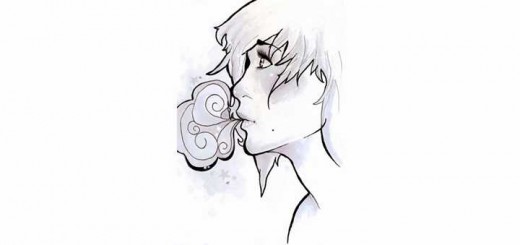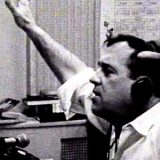DMCA Takedown Takedown
It’s time to believe in miracles. Okay, it’s time to hope for miracles. Either way, after podcasters have endured years of being on the losing end of takedown notices, the notices, themselves, may be ripe for a takedown.
At the end of December, the government announced that it was soliciting public comments on the Digital Millennium Copyright Act (DMCA). Foremost among the topics the government wanted to hear about was the abuse (my word) of DMCA takedown notices. It seems everyone is complaining about the notices, as well as the section of the law that establishes what’s known as a “safe harbor” for sites that post other people’s content.
Safety First, Sanity Last
Podcasters have good reason to hate the whole takedown process because it forces them to fight for their legal rights. Internet services hate it because they are flooded with tens of thousands of takedown demands a month. Content creators hate it because it requires them to file a new takedown demand for every illegal posting of their content, even if the illegal post was made by the same pirate hours after the pirate’s previous post—of the exact same content—was taken down.
If you’re not familiar with the concept of safe harbor, here’s some background, posted by Chris Meadows on the TeleRead blog:
The DMCA basically tells Internet services like blogs or YouTube that they can have “safe harbor”—that is, they can’t be held liable for copyright-infringing content a user uploads—as long as they act to take down infringing content as soon as they’re told about it.
Sounds reasonable. But as written, this safe harbor is a navigational nightmare.
The Fight’s Not Fair
Podcasts (and other forms of online content) that contain music are routinely tagged as violating copyright law on sites such as YouTube and SoundCloud, without a human ever listening to the episode in question. (Read more in this earlier post.) That’s because the system of detection and notification is automated. It’s sort of like a Shazam on steroids. The internet services argue automation is all that stands between them and a total meltdown under the volume of takedown demands.
But some of this flagged content falls comfortably within the fair use doctrine of the copyright law. The trouble is, the burden of proof is shifted to the podcaster, when a human listening to the content wouldn’t even bother filing a takedown demand. While the podcaster slogs through the paperwork, the copyright owners can monetize the podcast, quash any criticism of their content and skate if it turns out their takedown claim is invalid.
Battling Sony or BMG might be fine for a PodcastOne or NPR, organizations with the in-house legal heft to reply to these notices; but it leaves the majority of podcasters in a position of defending their innocence for the convenience of the large music labels.
It’s not supposed to work that way.
It’s Time to Dredge the Safe Harbor
One proposal under consideration is that a copyright owner only need issue a takedown notice once for the same content. That would slash the volume of demands internet services receive. If that happens, then perhaps the services will have more time to research the validity of those demands.
While we’re at it, why not grant some sort of “trusted producer” status to content producers who have successfully overturned some number of takedown notices, say three in the past month? For these producers, an internet service would need to receive proof of a takedown demand’s validity from the copyright holder before blindly taking the content down. That would go a long way toward balancing the legal scales that are so heavily weighted against small- and medium-sized podcasters.
Keep your eyes and ears on the blogs and podcasts that cover the podcasting world, and be prepared to add your voice to calls for reasonable accommodations for small- to mid-sized podcasters.
Believe me, this is an issue worth going to the mat for.
Addendum
The I’s have had it. The Associated Press announced that in the new version of its style book “internet” should no longer be capitalized. True, the New York Times and The New Yorker magazine haven’t weighed in with their opinion but, for now, I’m going with the AP. Henceforth, this humble little blog will spell it “internet,” unless the word begins a sentence or is capitalized in a quote.









